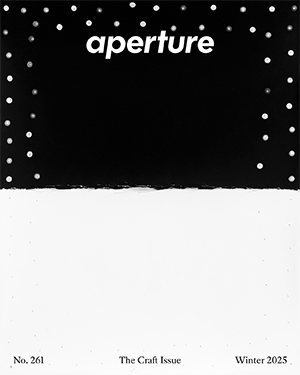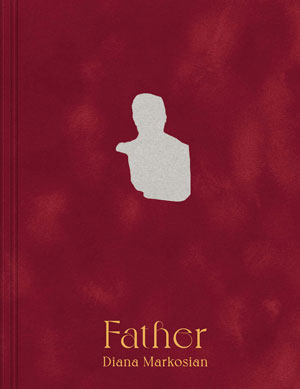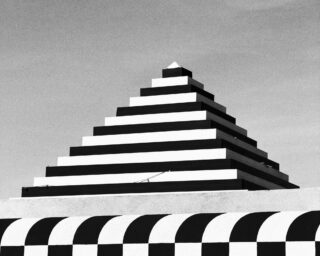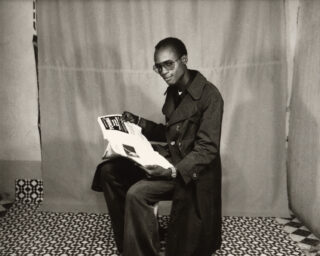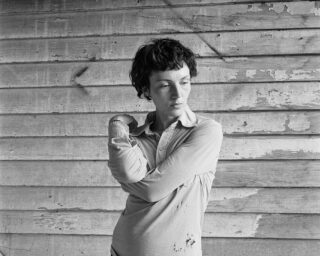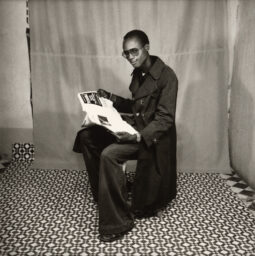Vision & Justice: Alicia Hall Moran on Ficre Ghebreyesus
Collectors: The Jazz Musicians
For the “Vision & Justice” issue of Aperture, Wynton Marsalis, Ingrid Monson, Alicia Hall Moran, Jason Moran, and Somi reflect on photographs that represent moments in their lives. Here, Alicia Hall Moran responds to Ficre Ghebreyesus’s Liberation Day, Amsara.
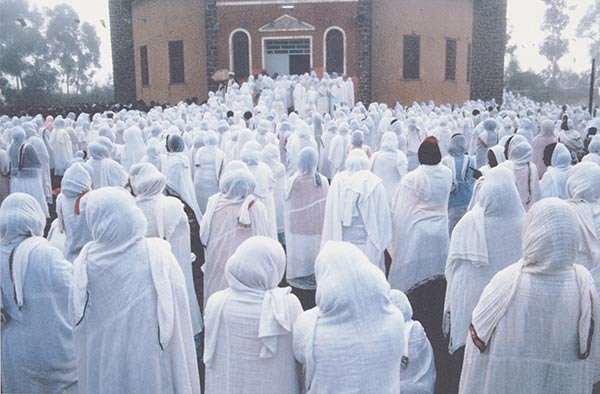
Ficre Ghebreyesus, Liberation Day, Asmara, May 24, 1991. Courtesy Elizabeth Alexander
I like the way I’m drawn into the bluish-white phalanx, a sort of cloud-gathering of women who are themselves being drawn—and by what?—into this Christian Coptic Orthodox Church. Are they submitting to an invisible force, or are they together the possibly greater force? Ficre Ghebreyesus captures a magisterial moment that could have been otherwise only matter of fact: people entering a structure. But he puts me in the throng. When he gave us this photo of his Eritrean homeland (he left Eritrea as a political refugee), it was in his new home in New Haven, Connecticut. This was at the very end of some quixotic celebration he and his wife, the poet Elizabeth Alexander, had put on. Their two sons, then still very young, had just said their good nights to the company, as all beautiful and adored children of spectacular hosts do. Ficre then disappeared for a moment and returned with this print. He laid it out on the floor. Then he rolled it carefully for us to carry back to New York. It’s the photo of our hearth.
Alicia Hall Moran is a New York–based classical singer, composer, and performance collaborator. Her most recent studio album, Heavy Blue, was released in 2015.
Read more from “Vision & Justice” or subscribe to Aperture and never miss an issue.
